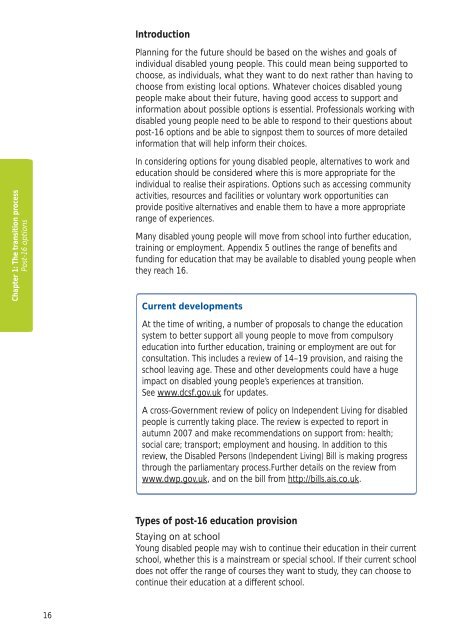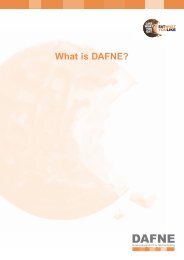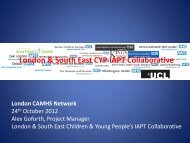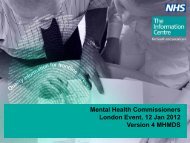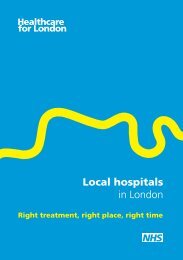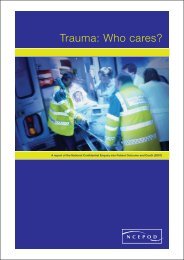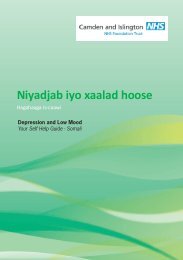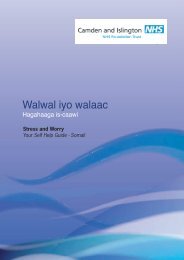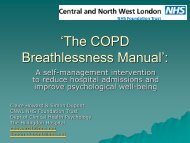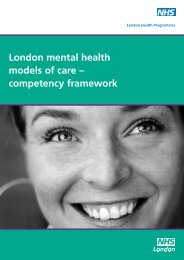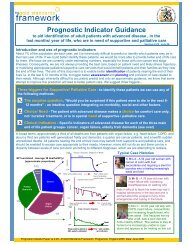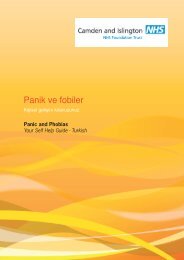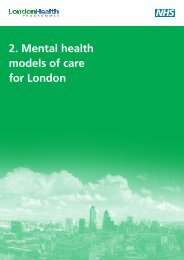A Transition Guide for All Services - Transition Information Network
A Transition Guide for All Services - Transition Information Network
A Transition Guide for All Services - Transition Information Network
- No tags were found...
You also want an ePaper? Increase the reach of your titles
YUMPU automatically turns print PDFs into web optimized ePapers that Google loves.
IntroductionPlanning <strong>for</strong> the future should be based on the wishes and goals ofindividual disabled young people. This could mean being supported tochoose, as individuals, what they want to do next rather than having tochoose from existing local options. Whatever choices disabled youngpeople make about their future, having good access to support andin<strong>for</strong>mation about possible options is essential. Professionals working withdisabled young people need to be able to respond to their questions aboutpost-16 options and be able to signpost them to sources of more detailedin<strong>for</strong>mation that will help in<strong>for</strong>m their choices.Chapter 1: The transition processPost-16 optionsIn considering options <strong>for</strong> young disabled people, alternatives to work andeducation should be considered where this is more appropriate <strong>for</strong> theindividual to realise their aspirations. Options such as accessing communityactivities, resources and facilities or voluntary work opportunities canprovide positive alternatives and enable them to have a more appropriaterange of experiences.Many disabled young people will move from school into further education,training or employment. Appendix 5 outlines the range of benefits andfunding <strong>for</strong> education that may be available to disabled young people whenthey reach 16.Current developmentsAt the time of writing, a number of proposals to change the educationsystem to better support all young people to move from compulsoryeducation into further education, training or employment are out <strong>for</strong>consultation. This includes a review of 14–19 provision, and raising theschool leaving age. These and other developments could have a hugeimpact on disabled young people’s experiences at transition.See www.dcsf.gov.uk <strong>for</strong> updates.A cross-Government review of policy on Independent Living <strong>for</strong> disabledpeople is currently taking place. The review is expected to report inautumn 2007 and make recommendations on support from: health;social care; transport; employment and housing. In addition to thisreview, the Disabled Persons (Independent Living) Bill is making progressthrough the parliamentary process.Further details on the review fromwww.dwp.gov.uk, and on the bill from http://bills.ais.co.uk.Types of post-16 education provisionStaying on at schoolYoung disabled people may wish to continue their education in their currentschool, whether this is a mainstream or special school. If their current schooldoes not offer the range of courses they want to study, they can choose tocontinue their education at a different school.16


